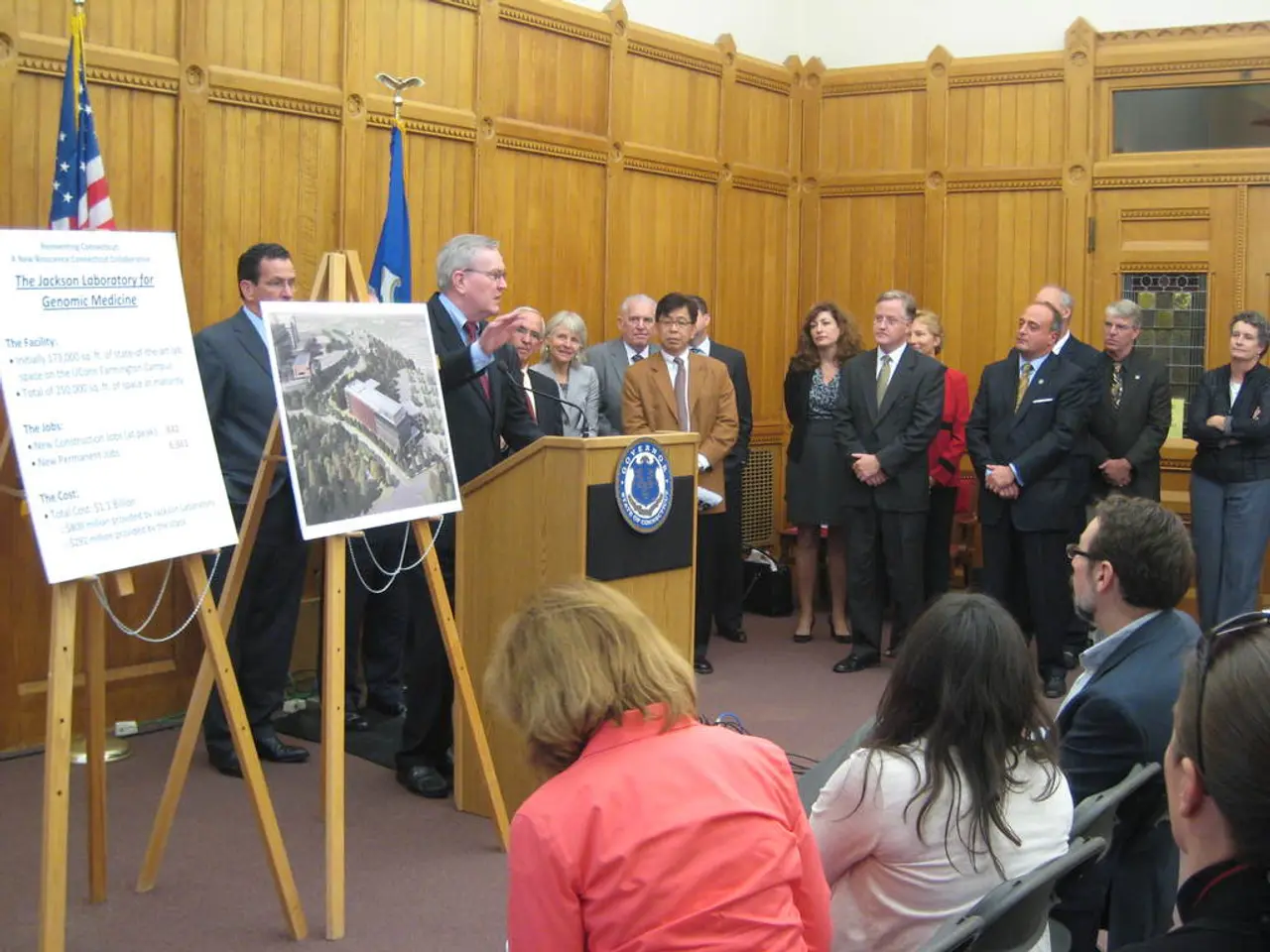Recommendation from the Federal Election Committee for a new judicial nominee to the Federal Constitutional Court.
In a significant political development, the governing coalition in Germany is set to seek the votes of the Left party (Die Linke) for the upcoming judge elections at the Federal Constitutional Court. The need for coalition-opposition support arises due to the requirement of a two-thirds majority in the Bundestag for the election of constitutional court judges.
The new Bundestag composition after the 2025 federal election has resulted in a situation where the right-populist AfD and the socialist Left together hold enough seats (34 percent in total) to block actions requiring a two-thirds majority, including the election of constitutional court judges and constitutional amendments[2][4]. This means that the coalition cannot secure the necessary two-thirds majority on its own and must seek support from opposition parties, including the Left, to elect new judges to the Federal Constitutional Court.
The court has 16 judges, half appointed by the Bundestag and half by the Bundesrat, each needing a two-thirds vote to be confirmed, ensuring broad consensus is necessary for appointments[4]. The first judge's election is scheduled for Friday, while the elections for the other two female judges will be held at a later date.
The SPD, one of the coalition parties, has expressed its intention to nominate professors of public law Frauke Brosius-Gersdorf and Ann-Katrin Kaufhold for the election. However, there are reservations within the Union about the legal scholar Brosius-Gersdorf nominated by the SPD, with Saskia Ludwig, a CDU member of the Bundestag, labeling her as "unelectable".
On the other hand, the CDU/CSU faction has nominated Judge Günter Spinner from the Federal Labor Court for the election. All current Federal Constitutional Court judges favour Judge Spinner, as confirmed at the end of May.
It is noteworthy that the Left wants to be included in the democratic camp, but the Union has a basic decision that there should be no parliamentary cooperation with the AfD or the Left. This presents a challenging political landscape for the coalition, as they navigate the delicate process of securing the necessary votes for the judge elections while maintaining their political principles.
The challenging landscape of German politics has been intensified, as the coalition seeks the votes of the Left party for the upcoming judge elections at the Federal Constitutional Court, a necessary step due to the 34% combined blocking power held by the right-populist AfD and the socialist Left. With policy-and-legislation, general-news, and the upcoming elections at the Federal Constitutional Court heavily swayed by the dynamics of the European Community institution and the German politics, the coalition must tread carefully to secure a two-thirds majority while adhering to their political principles.








